Industry
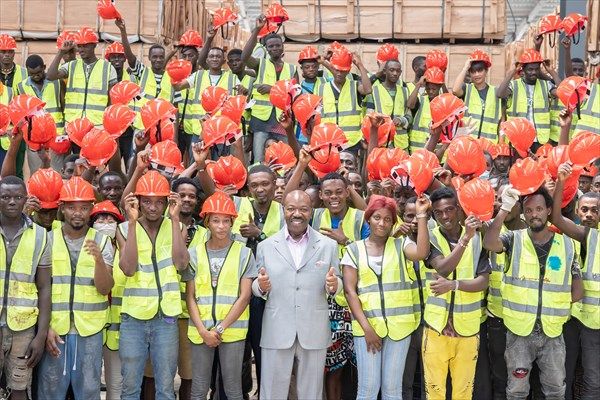
Gabon inaugurates historic gold refinery
The Gabonese Gold Refinery (ROG), the first gold processing plant in Gabon, has come on stream, as the oil producing country pushes for a more diversified economy. With a refining capacity of 7 to 10 tonnes of gold per year, the plant is a joint venture between the state-owned Equatorial Mining Company (SEM) and Alpha Centauri Mining (ACM), a company held by British and Emirati investors. Currently, total national gold production is estimated at around 2 tonnes. Located in the Special Economic Zone at Nkok in Libreville, the gold refinery is based on Italian technology, has zero emissions and 100% Acid Recovery, according to ACM. “It symbolizes the metamorphosis of our economy towards more diversification, job creation and local added value through the on-site processing of our raw materials,” President Ali Bongo Ondimba said during the commissioning of the project earlier this month, adding that Gabon plans to refine “100% of the gold produced in the country, make our country a hub for gold refining in Central Africa and allow up to a third transformation on site in particular to make jewellery in Gabon.” Last year, the Government of Gabon signed convention agreements with Alpha Centauri Mining (ACM) to boost gold exploration, exploitation and refining in the country. The company entered Gabon in 2016. The agreements set the framework for the commissioning and operation of the country’s first gold refinery. Mining for growth and development The commissioned refinery forms parts of efforts to develop Gabon’s gold potential as it seeks to expand an economy largely dependent on oil. The Central African nation is already one of the world’s top manganese producer and exporter but wants to develop additional minerals found in its soil. In a bid to attract investors and support local content development in the mining industry, Gabon adopted a new code for the sector in 2019. Earlier this year, minister for investment promotion and public-private partnerships Hugues Mbadinga Madiya echoed the government’s efforts to curb the export of raw materials as a means to improve higher value-added trade. “The general policy of the Gabon government is not to export raw materials,” Mbadinga Madiya told newsmen on the sidelines of the Africa Investments Forum & Awards in Paris in February. “The model of supplying raw materials does not create jobs.”
Read more »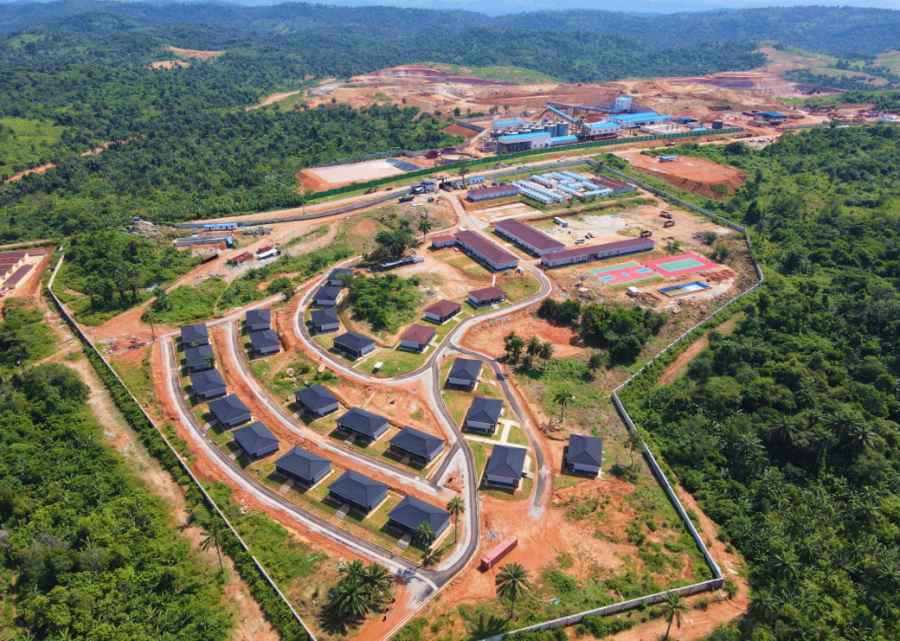
Canada based exploration company launches Nigeria lithium-focused subsidiary as it secures exploration tenure
Thor Explorations Ltd, a Canada-based mineral exploration company with interests in Nigeria, Senegal and Burkina Faso, has launched a Nigerian subsidiary to explore the country’s lithium potential as Africa’s biggest economy seeks to diversify its economy beyond oil and gas. Newstar Minerals Ltd, Thor’s newly formed Nigerian subsidiary, is looking to develop its first large-scale lithium mine in the country. The company has already acquired over 600 kilometres squared of granted tenure covering two known lithium bearing pegmatite deposits and one large unexplored prospective pegmatite-rich belt. Located in Nigeria’s southwest, the tenure covers West Oyo, Kwara State and Ekiti State lithium project areas. Initial field inspection and selective sampling of key sites have returned significant lithium grades from both hard-rock spodumene and lepidolite mineralisation, the company said. It will also continue to prioritise explorations at Segilola gold mine in Osun State, also in Nigeria. “While gold remains fundamental to our growth strategy, we consider the virtually untapped lithium potential of Nigeria to be an opportunity that is too good to miss,” Chief Executive Officer at Thor Explorations Segun Lawson said in a company statement, adding the company will leverage its established in-country presence, experience and first-mover advantage. “We intend to develop both businesses (gold and lithium) without any shareholder dilution.” In 2021, Thor Explorations poured first gold from its Segilola mine as Nigeria’s first industrial gold project entered production. The company spent nearly $100 million to build the mine. Africa Finance Corp., the company’s largest shareholder, provided an $86 million debt-equity financing package. Thor said the Segilola plant produced 98,006 ounces of gold in 2022, which was its first full calendar year of commercial production. Boosting economic growth with mining Nigeria, Africa’s largest oil producer, has substantial untapped deposits of metals including gold, zinc, lead, iron ore and lithium, but nearly all extraction takes place informally on a small-scale or manual basis. As a result, crude oil sales have continued to account for more than 75% of export earnings, leaving the country vastly reliant on oil. Successive governments have pledged to significantly increase mining’s contribution to gross domestic product, which currently stands at less than 1%. In 2017, the World Bank provided around $150 million to the Nigerian government to develop the mining sector, attract investments and enhance its contribution to the economy. Since then, the mining sector has witnessed some sustained growth in its contribution to the country’s GDP, contributing 0.85% in 2022 haven grown from 0.18% in 2018. Mining made up 4% to 5% of Nigeria’s GDP in the 1960s and 1970s, before major operations shut down and crude oil became the government’s major driver of revenues. The new administration of President Bola Tinubu says he wants to boost Nigeria’s GDP by stimulating the growth of non-oil sectors, giving hopes to the revival of some key sectors, such as mining, that were underperforming.
Read more »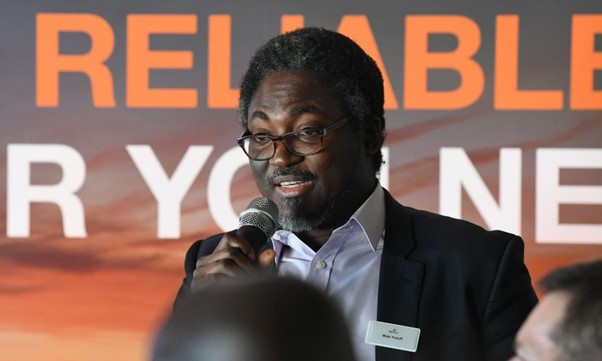
Opinion: Nigeria’s industry is rising to the twin challenge of decarbonisation and energy security
by Wale Yusuff, Managing Director of Wärtsilä in Nigeria Wale Yusuff, the Managing Director of Wärtsilä in Nigeria, explains how businesses operating in energy-intensive industries like cement or steel are investing in flexible engine technologies to secure reliable and efficient power while also setting the perfect stage to make good on their decarbonisation objectives. Nigeria is a major industrial hub. It is home to energy-intensive manufacturing businesses whose operations, and growth potential, are constrained by the weakness of the country’s electricity supply. To mitigate this, industrial companies have been building their own power generation capabilities, but the result has often been the reliance on expensive and polluting diesel generators. As such, the industrial sector represents one of the country’s largest sources of greenhouse gas emissions. In most places in Africa, the development of renewable energy capacity is a very competitive solution that industrials can adopt to lower their environmental impact and energy costs. But things aren’t as clear-cut in Nigeria. Most of its industrial activity is in the south, a region where wind and solar resources are often not available in the right quantity to make renewables competitive at today’s equipment prices. It leaves industrials with a twin challenge to meet. First and foremost, they need to secure their own reliable and affordable power capacity either by buying electricity from an independent power producer or by building their own “captive” plant. Second, they need to integrate decarbonisation in their overall energy strategy. Both objectives are not contradictory. By making smart technology choices, forward looking businesses like BUA Cement, African Foundries, Lafarge, Wempco, Nestle and Flour Mills have found a way to hit these two birds with one stone. Here is how. Securing a reliable supply of electricity Mitigating power generation risk is critical to Nigeria’s industrial growth. As one of the world’s largest producers of liquified natural gas (LNG), Nigeria has a strong interest to develop its utilization to power local industries. That’s why flexible engine power plants have emerged as the technology of choice for Nigeria’s industries. Fuel-flexible engine technology provides a great hedge against fuel supply risk as it can operate on multiple types of fuels, from gas to heavy or light fuel oil, and switch between fuels while operating. This fuel-flexibility is also a key enabler to the decarbonisation strategy of industrials, as engine power plants can be converted to run on sustainable fuels like biofuels and green hydrogen, ammonia, or methanol, when these become available. Thanks to their modular design, Wärtsilä engine power plants are easy to construct, fully scalable and can be deployed in phases. They have the flexibility to be ramped-up or down quickly to adjust to demand, they have a high operating efficiency even at partial load and are designed to cope with regular stops and starts. This very high operating flexibility is also what is needed for the future integration of intermittent renewable energy capacity to the power mix. What is more, they require much less water to function than competing power technologies, which is an important water conservation consideration in view of Nigeria’s long dry seasons. With all these attributes, flexible engine power plants offer a cost-effective solution to meet energy demand in the short term, and environmental objectives in the longer term. BUA Cement PLC, one of Nigeria’s largest cement producers, is one example of an energy intensive industrial company which has invested to secure its own flexible and reliable power supply and decrease its carbon footprint. As the demand for cement is increasing every year, BUA has taken advantage of the modularity of engine technology to increase its power capacity in stages. The company is currently installing a 70 MW power plant for the line 4 in its Sokoto cement plant, NW Nigeria. This is in addition to a 50 MW power plant commissioned two years earlier for the line 3 of the same cement plant. Future expansion plans include another 70MW for its OBU line 3 cement plant in Edo State SW by the end of 2023. The plants feature Wärtsilä 34 DF dual-fuel engines operating primarily with LNG and PNG, but with the flexibility to switch to an alternative fuel should there be interruptions to the gas supply, quality, or pressure. What is more, the operational flexibility of the Wärtsilä engines provides future-proofing advantages by enabling the potential integration of renewable energy further down the line. Paving the way for renewables Nigeria’s long term energy strategy has defined the rapid deployment of renewables and strengthening the power transmission network as key objectives. But it must also overcome the specific challenges of the tropical monsoon climate in the industrialized south of the country where the solar and wind potential is respectively 30% and 40% lower than in the hot and semi-arid conditions in the north. By investing in gas engine power plants, energy-intensive industries will not only decrease their carbon footprint, but they will also free up resources for the government to expand the transmission network enabling the entire country to benefit from the natural gas reserves located in the south and renewable resources in the north. Paras Energy sets an example of how this can work. Since installing a 132 MW Wärtsilä gas engine power plant in Ikorodu in Lagos State and Ogijo in Ogun State, Paras Energy is supplying the company’s steel production needs as well as providing power to the Nigerian grid to support over 20,000 homes annually. The company is now commissioning a 10 MW solar power plant in Suleja and a 5 MW solar rooftop system for commercial and industrial customers is under development. Flexible engine power plants represent a smart and future-proof investment for Nigeria’s energy intensive industries. They offer the efficient power capabilities needed to offset the shortcomings of the national power grid, strengthen their global competitiveness, and reduce their GHG emissions today and tomorrow. By working towards the country’s decarbonization targets, the smart energy investments made by industry will benefit the whole country.
Read more »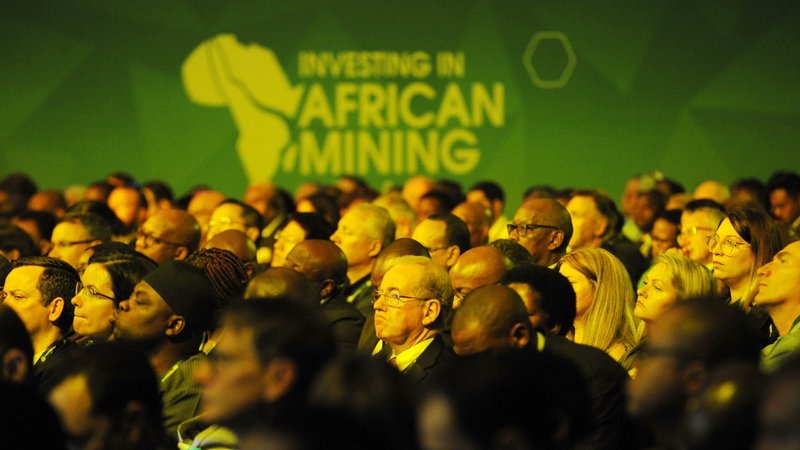
Africa Finance Corp. and Xcalibur Multiphysics join forces on responsible mapping of African natural resources
Africa Finance Corporation (AFC), the leading infrastructure solutions provider in Africa, and Xcalibur Multiphysics, the worldwide leader in airborne geophysics, have announced their intention to partner on mapping, developing and co-financing natural resource projects that will spur minerals and critical raw materials beneficiation in Africa. The partnership was announced at a signing ceremony today at the Mining Indaba in Cape Town, South Africa. AFC and Xcalibur, through their partnership, will prioritise projects to locate and identify AFC’s focus minerals, including precious, base and critical raw materials, comprising gold, diamonds, bauxite, manganese, copper, cobalt, graphite, lithium and rare earth elements. As a result, African countries will have access to improved geological data, which will de-risk investments in the sector, create local jobs, unlock mineral resource wealth and ultimately support a more just energy transition on the continent. Xcalibur will lead in providing the technical and mapping expertise, while AFC will lead in identifying and implementing investment and financing solutions for approved projects. Project development in seven priority countries is well advanced, extending soon to other African countries. AFC is one of the largest investors in Africa’s natural resources sector, leading transformational projects such as Nigeria’s Segilola Gold Mine, the country’s first private sector-led, commercial-scale gold project. In Sierra Leone, AFC partnered with the Ministry of Mines and Mineral Resources (MMMR) and the National Minerals Agency (NMA) on the launch of the results from a Nationwide Airborne Geophysical Survey (NAGS) to establish the full extent of the country’s wealth below ground and promote investment in its mining sector. The Corporation is also the lead investor in several precious and transition metal projects in the region, including the Karowe diamond mine in Botswana, the Kipushi copper and cobalt project in the Democratic Republic of Congo, the Franceville and Okondja manganese mining projects in Gabon and the Alufer Mining bauxite project in Guinea. These investments, amongst others, target in-country value-addition and beneficiation from Africa’s natural resources. The approach multiplies employment creation, increases export prices and government revenues, reduces trade costs and, importantly, minimises the carbon footprint associated with exporting raw materials and reimporting finished products. Sameh Shenouda, Executive Director and Chief Investment Officer, AFC “Africa has the largest reserves of the minerals and metals required for the global energy transition; the challenge is a lack of investment in mining, transportation, clean energy and processing. This is exactly what this partnership aims to address, and we look forward to working with Xcalibur to develop and finance critical projects that transform Africa’s resource wealth into economic fortune and spur economic diversification.” Xcalibur has a strong track record in executing large-scale, country-wide & regional mapping programmes and also high-resolution mapping programs, with an inventory of more than 50 million line kilometres of data acquired in Africa and worldwide. These programmes have demonstrably increased exploration activities in the host countries, leading to job creation and increased investment. Andrés Blanco, Chief Executive Officer, Xcalibur Multiphysics “Africa is exposed to climate change effects, and we believe that this alliance contributes to the green transition of the continent, combatting climate change, ensuring access to sustainable energy and protecting biodiversity and natural resources while allowing African countries and African companies to become just and relevant players on the energy transition map. We look forward to working with AFC to accelerate sustainable economic growth and build a more inclusive economy in Africa.”
Read more »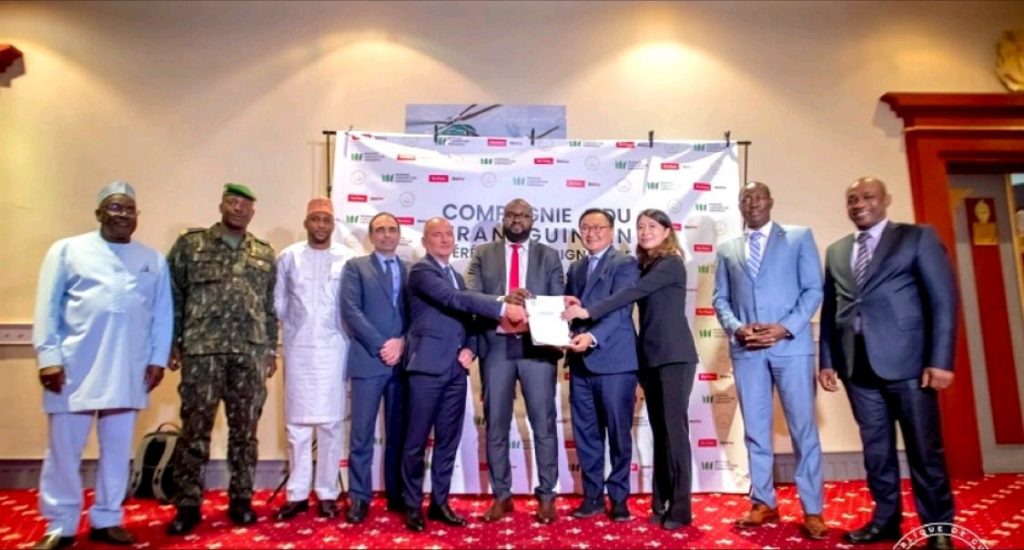
New joint-venture incorporated to unlock Simandou iron ore blocks development in Guinea
Last week, Rio Tinto announced the incorporation of the TransGuinean joint-venture (Compagnie du TransGuinéen, in French) that will develop and operate new critical rail and port infrastructure in Guinea. An International Partnership The company is a partnership between the Government of Guinea (15%), Winning Consortium Simandou (WCS, 42.5%), and Rio Tinto Simfer (42.5%). Its incorporation notably follows the signing of a Framework Agreement in March 2022 to facilitate investment decisions for the co-financing and co-development of the infrastructure required to develop the giant Simandou iron ore project. WCS is itself a consortium of Singaporean company Winning International Group (45%), Weiqiao Aluminium (part of the China Hongqiao Group, 35%) and United Mining Suppliers International (20%). On the other hand, the Simfer joint venture comprises Simfer S.A., the holder of Simandou South Blocks 3 & 4, which is owned by the Government of Guinea (15%) and Simfer Jersey Ltd (85%). In turn, Simfer Jersey Ltd is a joint venture between the Rio Tinto Group (53%) and Chalco Iron Ore Holdings (CIOH, 47%) – a Chinalco-led joint venture of leading Chinese state-owned companies. A multi-billion dollars investment programme The TransGuinean will co-develop a 650km rail corridor and ports infrastructure in the in the Forécariah prefecture to unlock reserves at the four Simandou iron ore blocks. WCS is holder of blocks 1-2 while Rio Tinto Simfer is holder of blocks 3-4. “Following the incorporation of the joint venture, the parties will now work on next steps including shareholding agreement, finalising cost estimates and funding, and securing all necessary approvals and other permits and agreements required to progress the co-development of infrastructures,” Rio Tinto said in a statement.
Read more »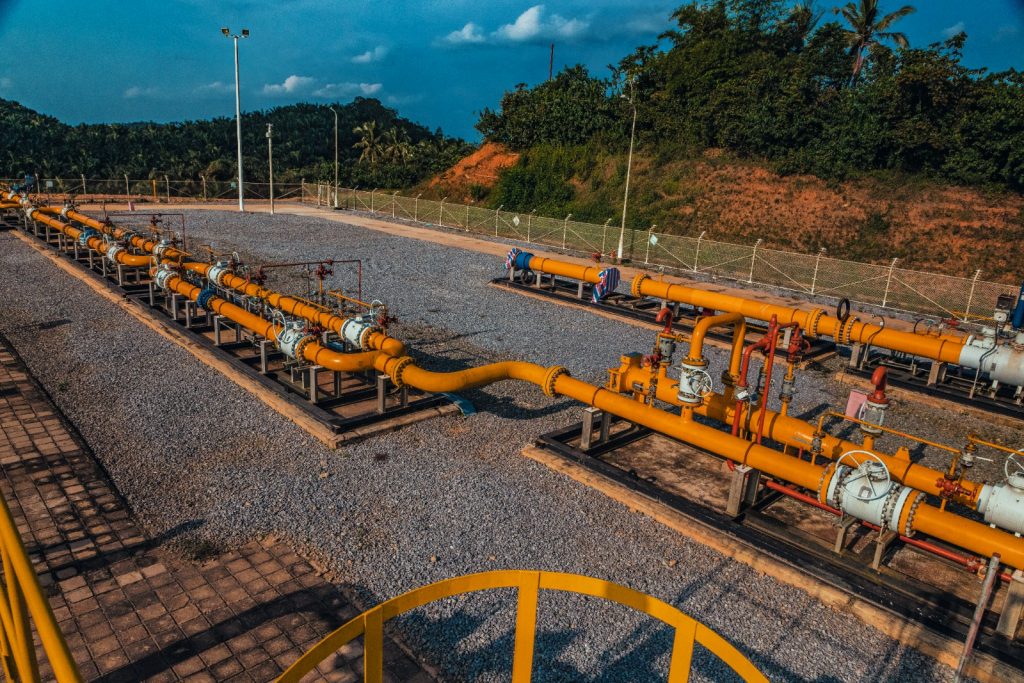
Genser Energy raises $435m to expand Ghana’s midstream gas infrastructure
American energy solutions provider Genser Energy has announced the closing of a $425m funding package to support the expansion of its midstream gas business in Ghana. The company is already a provider of captive power solutions to several of Ghana’s gold mines and is currently expanding across West Africa. The 8-year, $425m funding package includes a $325m syndicated senior loan facility and a $100m mezzanine loan facility. It will be used to refinance Genser Energy’s existing debt and support three critical midstream gas projects in Ghana. Expansion of Ghana’s gas pipeline network The first one is a 100km natural gas pipeline to Kumasi, Ghana’s second largest city. In doing so, Genser Energy seeks to make piped natural gas available within Ghana’s central belt and offer an alternative to imported trucked diesel and heavy fuel oil (HFO) for industries in the region. According to Genser Energy’s records, the company is planning to build an overall gas pipeline network of 320km in Ghana to connect its power generation plants to Ghana Gas’ Prestea Regulating and Metering Station (PRMS). In November 2019, a first phase of 80km was already commissioned to provide gas to Gold Fields’ Tarkwa and Damang gold mines power stations. Additional phases notably target gas supplies to Kinross Gold Corporation’s Chirano mine, Perseus Mining’s Edikan mine, and Gold Star Resources’ Wassa mines, among others. Launch of an integrated natural gas liquids (NGLs) business The second one is a 200 MMscf/d gas conditioning plant in Prestea, southwestern Ghana, where Genser Energy intends to produce natural gas liquids (NGLs) such as propane, butane, ethane, and liquefied natural gas (LNG). All NGLs will be sold under an off-take agreement to Trafigura, who notably participated in the mezzanine loan. Trafigura is also providing additional funding to the third and last project, a NGL storage terminal at the Takoradi Port. A wide range of financiers The ability of Genser Energy to secure such a debt package is an encouraging sign for Africa where several asset owners and operators are currently raising capital for domestic midstream and downstream gas ventures. A wide and diverse range of investors participated in Genser Energy’s senior loan facility, including regional and commercial international banks, development financial institutions, and funds. These comprised the Standard Bank of South Africa, Absa Bank, Société Générale, the Mauritius Commercial Bank, Ninety One, Barak Fund SPC Ltd, and the Development Bank of Southern Africa. On the other hand, the mezzanine loan facility is provided by Trafigura, Barak Fund SPC Limited and the US Based Fund, Trilinc Global Sustainable Income Fund Master Ltd.
Read more »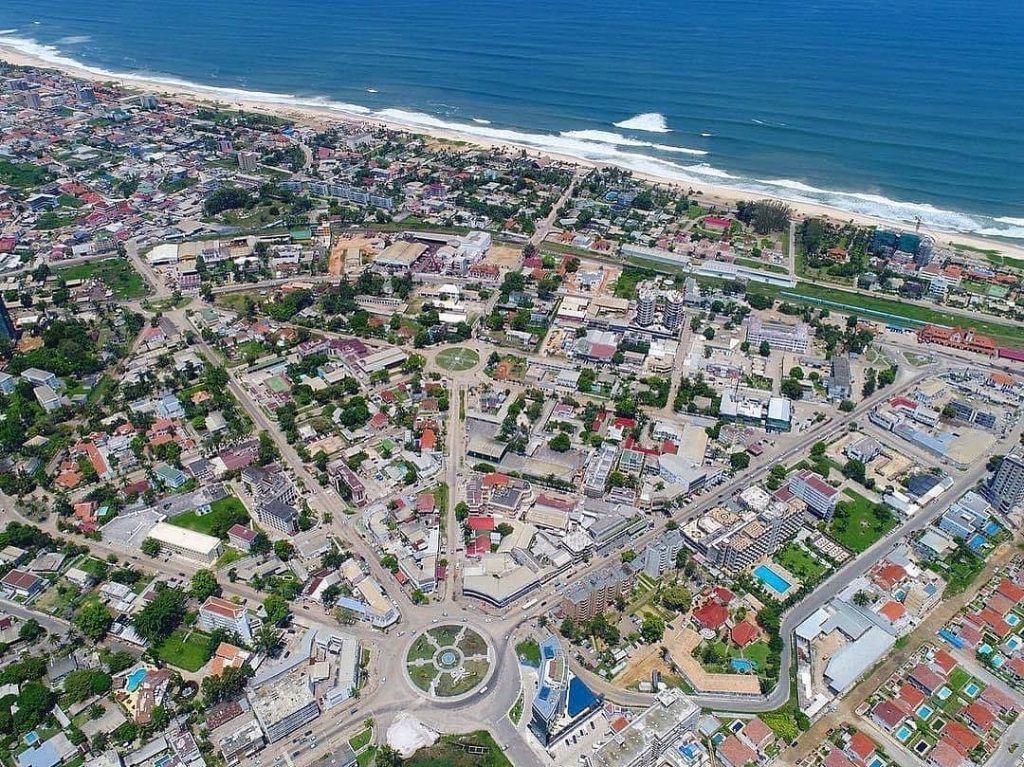
After Gabon, Togo, and Benin, Arise IIP sets its eyes on Congo-Brazzaville
Arise Integrated Industrial Platforms (IIP) has signed yesterday an MoU with the Ministry of International Cooperation and Public-Private Partnership Promotion of the Republic of Congo for the development of two new industrial zones in Pointe-Noire and Ouésso. The Republic of Congo would hold a 30% stake in both projects, with Arise IPP retaining the remaining 70%. The company is notably expected to invest some €150m into the new industrial zone in Pointe-Noire and a mineral port, in a scheme that echoes what Arise IPP has already done in Gabon. “The Pointe-Noire SEZ and the mineral port will spread across 2700 hectares, and will focus on the local transformation of timber, agriproducts, and other processing industry,” Arise IPP said in a statement. Feasibility studies should be completed by the end of August 2022 for a completion of the projects in 2025. Arise IIP has already developed 12 integrated industrial zones across Africa, with the Gabon Special Economic Zone (GSEZ) seen as a true example of success. In 2021, it also launched Togo’s landmark multi-sectoral industrial park, the Plateforme Industrielle d’Adétikopé (PIA). In 2022, it is expected to launch the Glo-Djigbé Industrial Zone (GDIZ) in Benin. The company continues to be backed by the Africa Finance Corporation (AFC) and Olam of Singapore, its two shareholders.
Read more »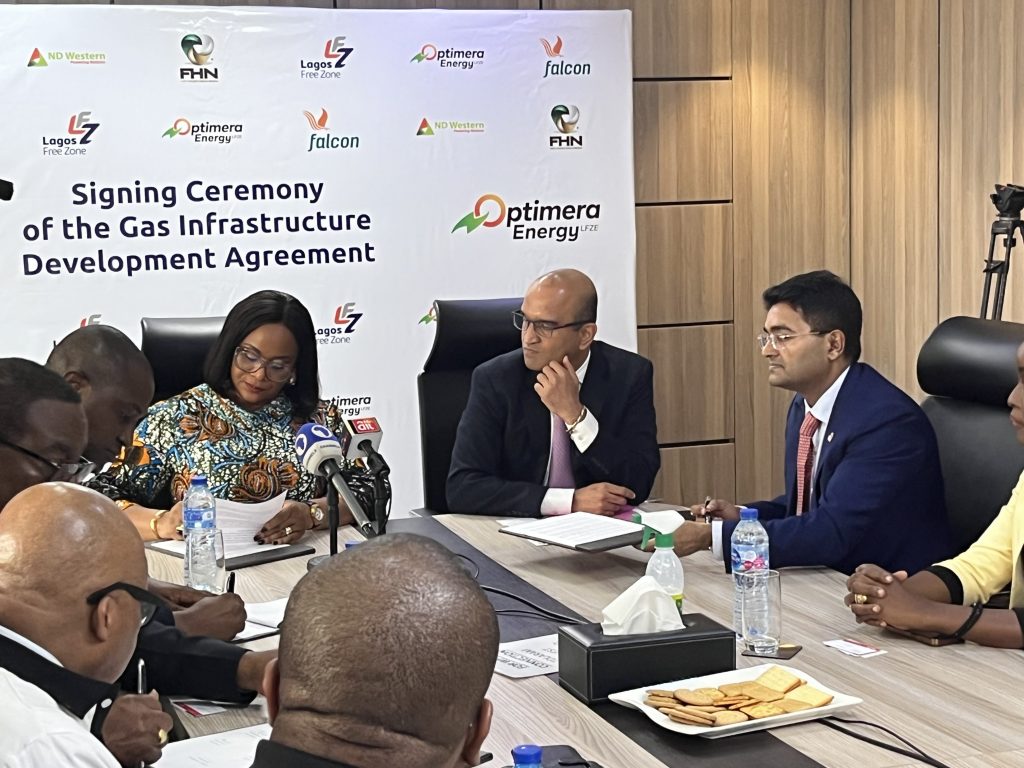
Nigerian companies team up to provide gas to West Africa’s leading industrial hub
The Lagos Free Zone (LFZ) has officially signed earlier today a Gas Infrastructure Development Agreement with Optimera Energy FZE to develop its own gas distribution network. The new project gathers some of Nigeria’s leading gas players around a new venture committed to promoting gas-based industrialisation. West Africa’s leading industrial hub needs gas Located on the Lekki Corridor, the Lagos Free Zone covers some 830ha and is quickly emerging as West Africa’s leading integrated multi-cluster industrial zone. The project is promoted by the Tolaram Group of Singapore and is co-located with the Lekki Port, Nigeria’s deepest multi-purpose seaport, expected to be completed this year. LFZ has already been successful in attracting several industrial companies and manufacturers including TG Arla, Kellogg’s, Colgate, BASF, Saba Building Systems, or Raffles Oil amongst others. As the zone grows, it seeks to cater for potential high-growth sectors such as FMCG, pharmaceuticals, chemicals, engineering, non-metallic minerals, logistics and mixed-use. This is in return increasing the need to provide world-class infrastructure, including a reliable energy supply. Optimera Energy is now in charge of building, owning, and operating the natural gas distribution network within the free zone. The project is expected to require some $20-25m, with uninterrupted deliveries of piped gas expected to start in 2024. Initial capacity will be set at 5 MMscf/d before being gradually increased to 40 MMscf/d as demand in the zone picks up. The special purpose vehicle (SPV) gathers three of Nigeria’s strongest gas players including natural gas distributor Falcon Corporation Ltd and independent oil & gas companies ND Western and First Hydrocarbon Nigeria (FHN) via their respective subsidiaries ND Western Midstream Ltd and FHN Gas Ltd. “The Optimera consortium is made up of like-minded shareholders who are passionate about a common goal: accelerating the further growth of domestic gas utilisation in Nigeria. Having reliable dedicated gas supply infrastructure installed in the LFZ adds tremendous value to existing industrial concerns and will increase the Zone’s attractiveness to future customers.” Audrey Joe-Ezigbo, Managing Director of Optimera Energy and Deputy Managing Director of Falcon Corporation. Promoters of gas-based industrialisation Falcon Corporation has been successfully operating the Ikorodu natural gas franchise in Lagos since November 2006 and will bring its experience in building and operating gas pipeline networks for industries. The company is also a bulk distributor of Liquefied Petroleum Gas (LPG) in the domestic market and is actively developing LPG bulk storage infrastructure in the Niger Delta. On the other side, both ND Western and FHN are amongst Nigeria’s biggest gas producers from OML 34 and OML 26 in the Niger Delta, with combined gas reserves of over 4 Tcf. Via Optimera Energy, they will be transporting their gas to the Lagos Free Zone via the Escravos-Lagos Pipeline System (ELPS). ND Western has notably increasingly positioned itself as an enabler of industrialisation in Nigeria. The company already supplies gas to several power plants in the country via ELPS and exports gas to West African markets via the West Africa Gas Pipeline (WAGP). On OML 34, it has recently embarked on the development of an industrial park providing industries with direct access to cheaper gas directly at the pump. The rise of gas-to-industry in Nigeria Because the power sector remains illiquid, the promotion of gas utilization across other industries is seen as a priority under Nigeria’s Decade of Gas initiative. Chief amongst them is the expansion of the downstream gas sector, especially Autogas for cars and piped natural gas (PNG) for industries. Consequently, industrial gas off-takers are on the rise, and the volumes of domestic gas monetised by Nigerian industries (gas-to-industry) have doubled between 2015 and 2021. To know more about the trends, actors, and projects shaping up Nigeria’s natural gas sector, please log into your Hawilti+ research terminal at plus.hawilti.com.
Read more »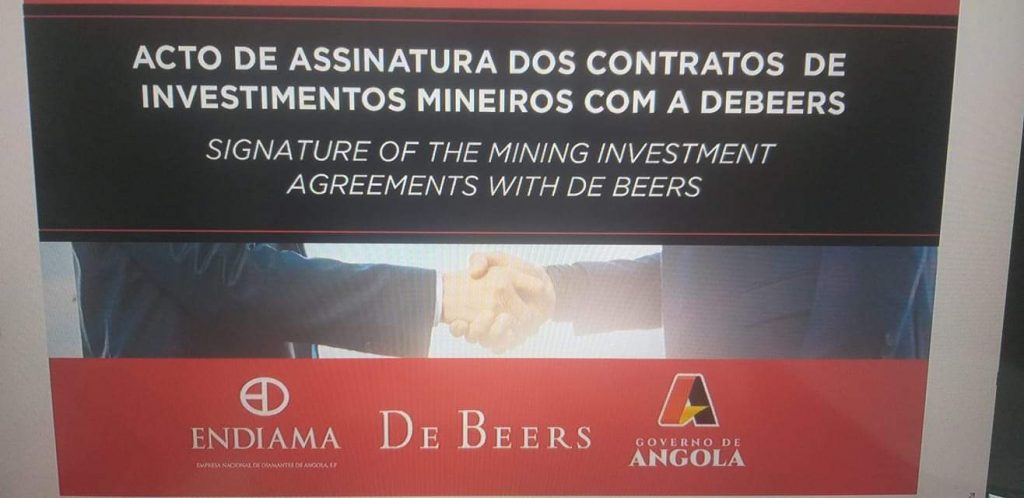
After Rio Tinto, De Beers also seals deals for diamond exploration in Angola
De Beers Group announced yesterday the signing of two Mineral Investment Contracts (MICs) with the Government of Angola for licence areas in north-eastern Angola. Both contracts formalize the award and exercise of mineral rights over a period of 35 years each, allowing De Beers Group to explore and mine diamonds in the southern African country. Each concession area will be held by a separate new joint venture company formed by De Beers Group and Endiama, Angola’s state-owned diamond company. This is another win for Angola’s diamond industry that has been the subject of substantive reforms over the past years to attract investors. In October last year, Angola’s Ministry of Mineral Resources, Petroleum & Gas and Endiama had already signed a MIC with Rio Tinto for the Chiri diamond concession in the Lunda Norte Province in northern Angola, at the border with the Democratic Republic of Congo (DRC). As Angola pursues its economic diversification strategy, its mining and minerals industry offer attractive opportunities to industrialise the country while generating jobs. Angola is already the world’s sixth largest diamond producer and diamonds represent its second biggest source of export earnings after oil and liquefied natural gas (LNG). In 2021, the country produced 9.4m carats of diamonds worth over $1.5bn, according to data from its Central Bank. The sector generated Kz. 72bn for the government, or some $175m.
Read more »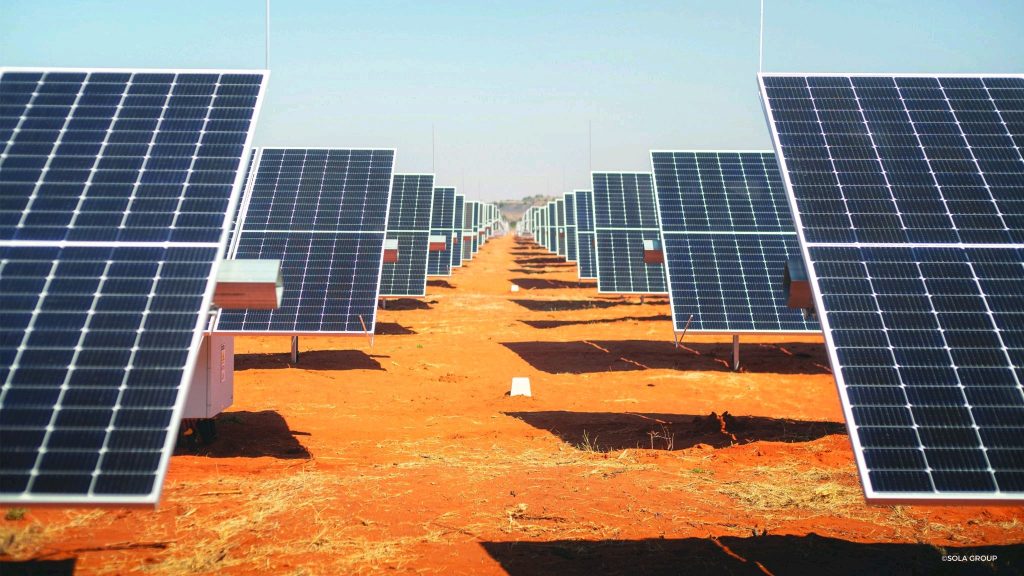
World’s leading titanium manufacturer to set up 200 MW solar plant in South Africa
Tronox Holdings, one of the world’s leading producers of high-quality titanium products, has signed a power purchase agreement (PPA) this week with South African IPP SOLA Group for 200 MW of solar power capacity. The project is expected to be commissioned by Q4 2023 and supply clean energy to Tronox’ mines and smelters in South Africa. “This 200 MW solar project is expected to provide approximately 40% of Tronox’s South African electricity needs and lower its worldwide scope 1 & 2 emissions by approximately 13%,” Tronox said in a statement. The company has set a target of aligning with a global warming scenario below 2° C and achieve net zero GHG emissions by 2050.
Read more »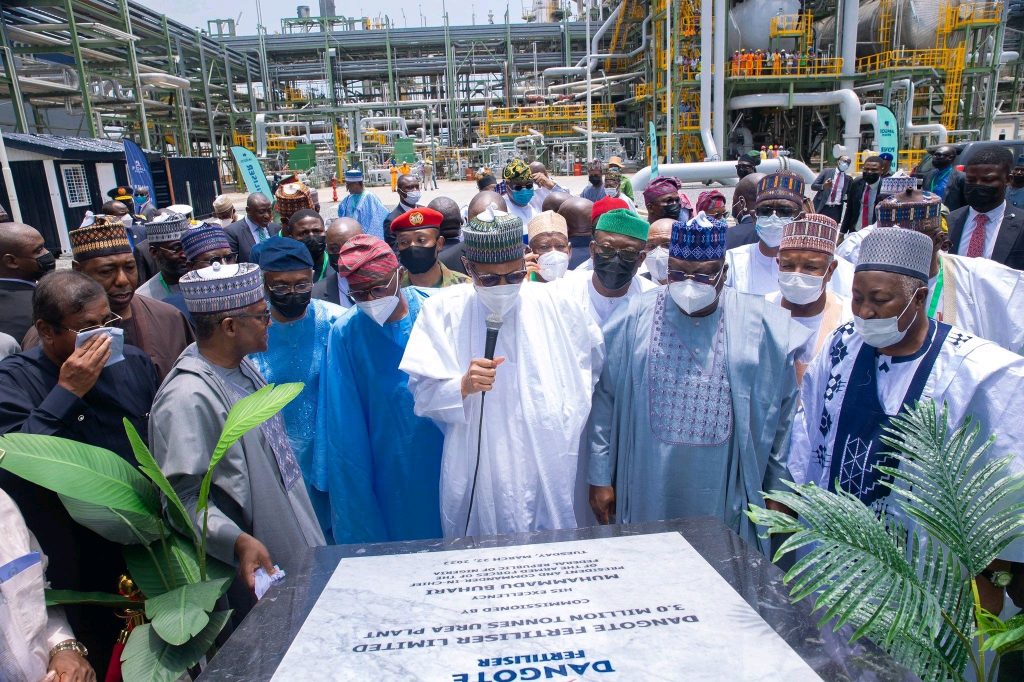
World’s second largest granulated urea plant commissioned in Nigeria
Yesterday, President Muhammadu Buhari commissioned Africa’s largest granulated urea plant and the second biggest in the world in Ibeju Lekki. The Dangote Fertilizer facility has a capacity of 3 million tonnes per annum (mtpa) and is now making Nigeria self-sufficient in fertilizers, with extra capacity reserved for exports. “We have already started exporting to the USA, Brazil, India and Mexico,” Aliko Dangote said during the commissioning ceremony held at the Lekki Free Zone. The $2.5bn twin train facility processes domestic gas to produce urea and ammonia, and is located next to the 650,000 bpd Dangote refinery and petrochemicals complex, where operations are yet to start. Just this month, state-owned NNPC, the Shell Petroleum Development Co. (SPDC) JV and Dangote sealed a new Gas Supply & Aggregation Agreement (GSAA) to supply 70 MMscfd of gas from the Tunu CPF (OML 35) to Dangote Fertilizer. Another GSAA had previously been signed in December 2019 with Chevron Nigeria.
Read more »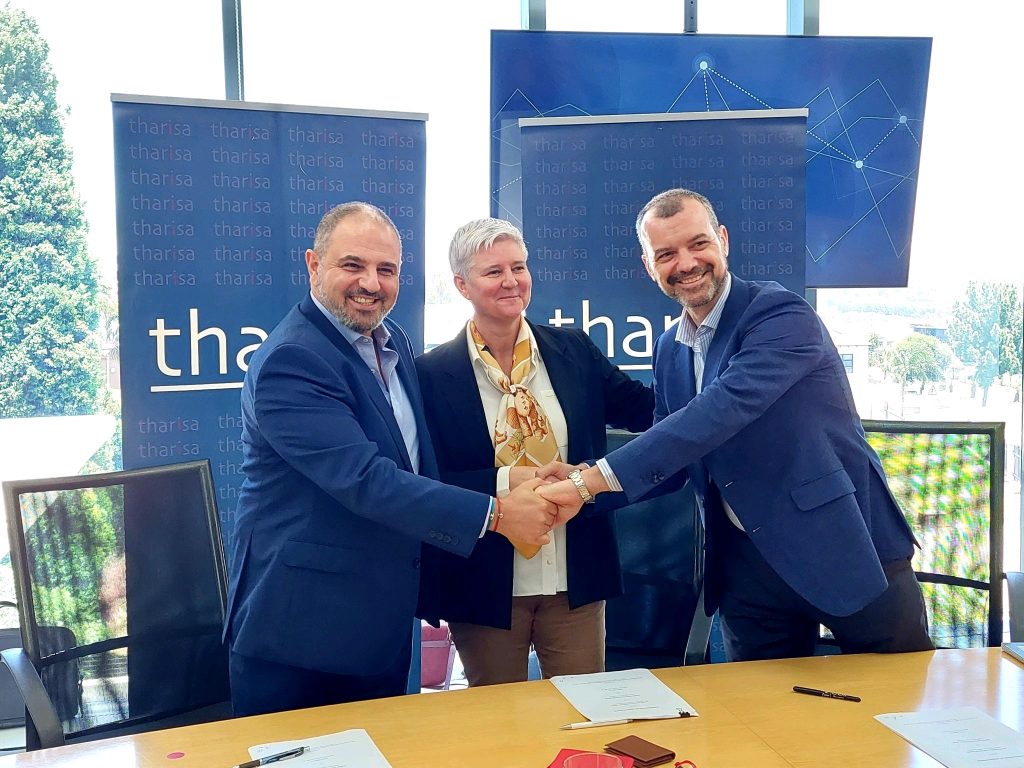
South Africa’s Tharisa mine to run on solar with upcoming 40 MWp facility
TotalEren and Chariot have announced today the signing of a new Memorandum of Understanding (MoU) with South African platfinum group metals and chrome producer Tharisa Plc. The agreement paves the way to develop, finance, construct, own, operate and maintain a 40 MWp solar PV project at the Tharisa mine in South Africa’s North West Province. Following the execution of the MoU and before the project can be implemented, the parties will be negotiating a Power Purchase Agreement (PPA) for the supply of electricity on take-or-pay basis. Last November, Chariot had already signed binding key terms of a long-term joint-development partnership with Total Eren. By working together, both companies are working to jointly originate and develop wind and solar projects for mining clients in Africa. The partnership has an initial duration of three years and started on January 1st, 2022. It could then be extended for a further two years. Under the agreement, Chariot will have a right to invest between 15 to 49% into the co-development of projects. While TotalEren is a proven renewable energy independent power producer (IPP), Chariot acquired in 2021 the business of Africa Energy Management Platform (AEMP) for $2m to venture into the sector. AEMP was a renewable and hybrid energy project developer who already had a strategic partnership with Total Eren. Prior to AEMP’s acquisition by Chariot, both AEMP and TotalEren were already looking at a pipeline of 500 W of power to African mine operators.
Read more »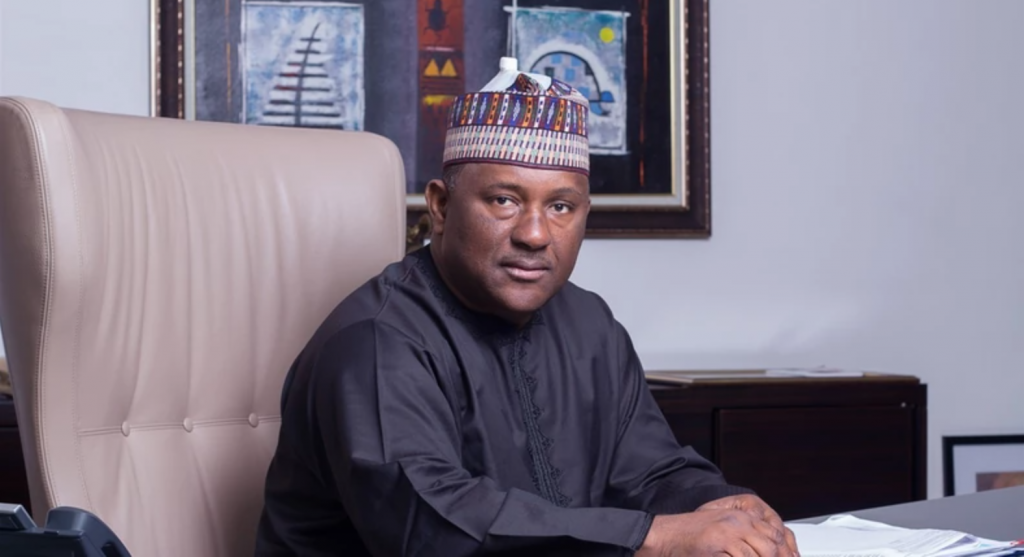
BUA Foods: Why Bet on Nigeria’s Newest FMCG conglomerate
Nigerian capital markets started 2022 with an injection of NGN 720 bn ($1.8bn) following the listing of BUA Foods on the main board of the Nigerian Stock Exchange (NSE). The new company is the result of the consolidation of several of Abdulsamadu Rabiu’s businesses under BUA International, a conglomerate he founded in 1988. While BUA Cement listed in January 2020, several of the group’s other verticals remained unstructured, including sugar refining and plantations, rice, flour milling & pasta production, oil & gas, construction, real estate and logistics. With BUA Foods, Rabiu is betting on Nigeria’s agriculture and fast-moving consumer goods (FMCG) market by consolidating its sugar, rice, flour, pasta and edible oils business into one single entity. BUA Foods combines assets worth almost NGN 650 bn and had generated over NGN 300bn from January to November last year, with a net profit of almost NGN 80 bn. Some of the country’s best institutions were mobilized on the listing operation, including Udo Udoma & Belo-Osagie as solicitors, Stanbic IBTC Capital as lead financial adviser, Rand Merchant Bank Nigeria and UCML Capital as joint financial advisers, APT Securities and Funds and CardinalStone Securities as joint stockbrokers. For investors, BUA Foods offers an interesting and diversified exposure to Nigeria’s FMCG market, expected to grow on the back of strong demographics and a projected population of over 260m by 2030. However, for Rabiu and the entire BUA Group, the challenge is now on navigating the country’s sluggish economic recovery that has left consumer spending at very low levels on the back of historic inflation and rising poverty. In this context, BUA Foods’ confidence comes from its investment into some of the country’s most basic and needed goods. Despite a weak consumer disposable income and high poverty rates, the case for the growth of Nigeria’s consumer goods industry remains compelling. This is notably the case for staple foods such as bread, pasta, rice and cereals where growth is modest but positive even in the short-term. BUA Foods also has policy on its side. Through the Central Bank of Nigeria (CBN), the government has constantly sought to boost local output by restricting access to foreign exchange for dozens of imported items. These notably include food and agricultural products such as rice, palm oil, vegetable oil, and margarine – precisely the ones the company is investing in. Betting on import-substitution with sugar In sugar, BUA Foods now gathers the Apapa and Port Harcourt sugar refineries with a total refining capacity of 1.5 million metric tonnes per annum (mtpa), along with 70,000 ha of plantations in the states of Kogi (Bassa Sugar Co.) and Kwara (LASUCO Sugar Co.). With such assets, Rabiu wants to be part of the execution of the Nigerian Sugar Master Plan (NSMP) that seeks to cut sugar imports and grow local output. BUA Foods’ new sugar division is notably expected to commission this year a new 220,000 tonnes per annum (tpa) sugar refinery on its LASUCO plantation in Lafiagi (Kwara) with a daily crushing capacity of 10,000 tonnes of cane per day (tcd). The refinery will also be able to produce 20m litres of ethanol a year, and 32 MW of electricity from bagasse, making it Nigeria’s most integrated sugar complex. The project received a $200m boost from the Africa Finance Corporation last year, and remains one of Nigeria’s most ambitious and vertically-integrated facility. Positioned for long-term growth in flour In flour, BUA Foods will need to operate in a market where demand has been heavily impacted by the Covid-19 pandemic but where long-term growth fundamentals remain robust. The market remains heavily marked by imports of wheat and is dominated by well-established players such as Flour Mills of Nigeria, Honeywell Flour Mills and Crown Flour Mills (Olam). To compete and grow, BUA Foods’ flour division can rely on a flour milling complex in Rivers State with a capacity of 500,000 tonnes per annum (tpa). The facility is currently being expanded to 1.3 mtpa by Turkish contractor Milleral Integrated Millin Systems, with commissioning expected no later than this year. On the verge of leadership in pasta In pasta, BUA Foods inherited from an industrial complex in Port Harcourt made of one pasta factory plant with a capacity of 250,000 tpa. This is currently being increased to 500,000 tpa with the addition of a second factory built by Italian contractor FAVA. Upon commissioning, it will make BUA Foods Nigeria’s second-largest pasta producer. While rice dominates the Nigerian market, pasta consumption has been on the rise and Fitch Solutions notably forecasts market revenue to to experience double digit growth until at least 2026. Ambitious expansion plans in rice In rice, BUA Foods is constructing a rice milling facility with an initial capacity of 200,000 tpa, and a rice plantation of about 10,000ha in Kano. Both assets will make the company the largest rice milling business in Nigeria and are expected to start operating this year. With rice, Rabiu bets once again on an attractive import-substitution business. Rice is the third-most consumed staple food in Nigeria after maize and cassava, but while Nigeria is Africa’s second largest rice producer, it is also the world’s third largest rice importer. Moving forward, the company wants to expand its rice milling business to a combined 1 mtpa with the installation of new rice milling facilities in Gujungu (Jigawa State) and a rice mill and plantation in Agaie (Niger State). While the market is dominated by the likes of Olam International, TGI (Wacot Rice) and Stallion, the size of the cake is big enough for everyone. However, BUA Foods’ success will depend on its ability to improve seed quality and adopt better farming techniques to support output growth and competitive margins. An ambition to resuscitate a defunct edible oils business In edible oils finally, BUA Foods inherits from two palm oil mills in Kano and Lagos with a capacity of 250,000 tpa. However, neither facility is operational and the new edible oil division is expected to resuscitate them by 2024
Read more »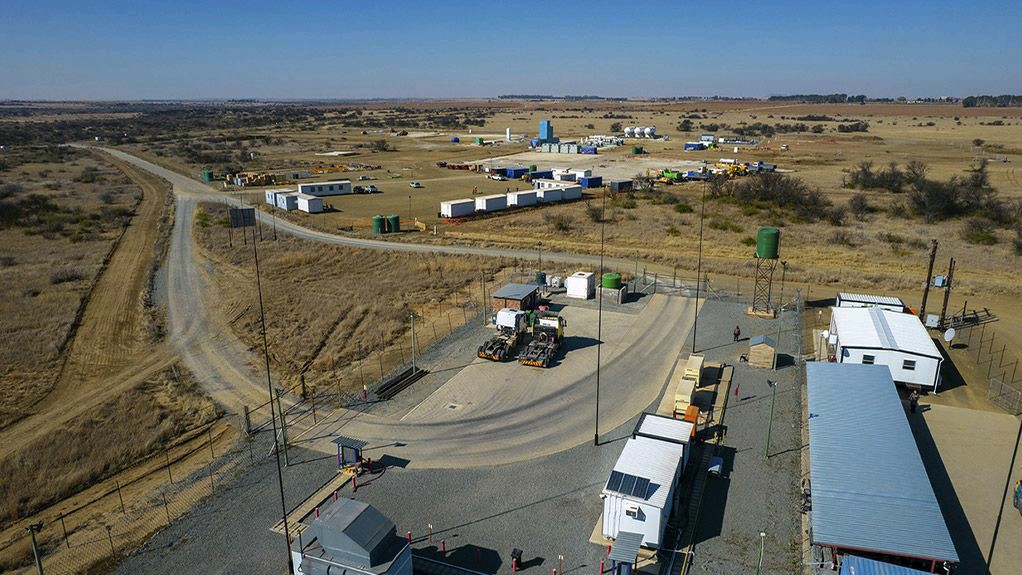
Renergen’s shares take off after 600% increase in reserves at South Africa’s Virginia Gas Project
Renergen’s shares have been up +43.14% on the Australian Securities Exchange (ASX) and +31.27% on the Johannesburg Stock Exchange (JSE) since Friday. The most significant jump happened today with an increase of almost +30% on the ASX and +15% on the JSE after the company reported a 600% increase in its 1P helium reserves in South Africa. Source: Yahoo Finance Renergen is South Africa’s only onshore petroleum production right holder and sits over a Production Right area of 187,000 ha in the Free State around the towns of Welkom, Virginia and Theunissen. This is where its subsidiary Tetra4 is developing methane and helium reserves to produce liquefied natural gas (LNG) and helium, mostly for the domestic market at first. A 600% Jump in 1P Helium Reserves Following the recent successful drilling campaign and as part of Renergen’s ongoing assessment and development of Virginia, the company had commissioned international Reserves and Resources accreditation agency Sproule to estimate its reserves and resources of methane and helium within the Virginia Production Right area as at September 1, 2021. Sproule’s estimation resulted earlier today in an upgrade of both methane and helium reserves. 1P helium reserves have notably increased by an impressive 620% to 7.2Bcf while 1P methane reserves have increased by 427% to 215.1Bcf. As a result, 2P total gas, including methane plus helium, is now equivalent to 65 MMscfd for the remainder of the license tenor. Phase 1 is Almost Complete The development of Phase 1 at Virginia is already well underway and involves the connection of 12 existing gas wells to a new 52km gas pipeline and small-scale LNG and helium processing plant. Renergen secured all the necessary funding for this first phase and held a groundbreaking ceremony at the end of 2019. Drilling is now ongoing, along with pipeline construction and the development of the gas plant, with a commissioning expected before the end of 2021 and start of helium production in Q1 2022. Meanwhile, logistics and transport companies are expected to make a major part of future customers, and Renergen launched South Africa’s first LNG auction in July 2020 to allocate future LNG production. Strong interest for the auction confirmed the appetite of the South African market for cleaner and cheaper fuels. In August 2021, Renergen also executed its first LNG supply agreement not linked to the transport sector: the 5-year contract was inked with Consol Gloss for about 14 tons per day of LNG and will start in January 2022. It carries a price which will be linked to the floating LPG price in South Africa. Towards Phase 2 Phase 2 is expected to follow by 2024, further increasing LNG production to meet an anticipated increase in demand and provide LNG supplies across all major highways in South Africa. Key contracts for phase 2 were awarded in early 2021, including the FEED studies, and the final investment decision (FID) is expected to be taken once these are completed. Phase 2 is designed to allow Renergen to produce significantly larger quantities of LNG and liquid helium with a target of 44 MMscfd of gross gas sales made up of helium and methane. Phase 2 is expected to require a CAPEX of $800m and involve a drilling campaign of 297 wells, anticipated to build up to 44 MMscfd at full production. 65% of Phase 2’s anticipated production is already pre-sold to clients including Linde, Meser, Helium 24 and iSi. Details on the Virginia Gas Project are available in the “Projects” section within your Hawilti+ research terminal.
Read more »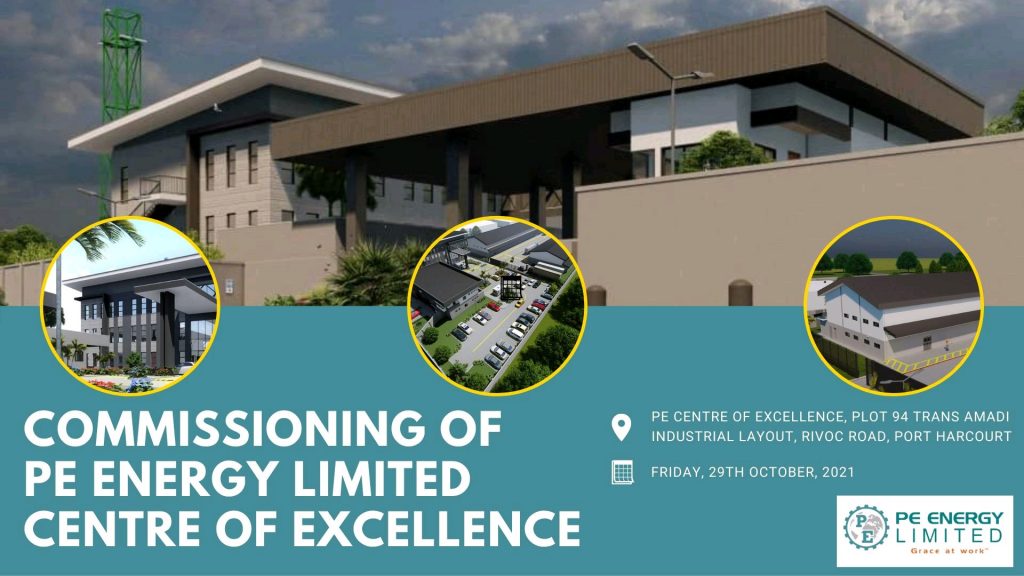
PE Energy opens new Centre of Excellence to support Nigerian content
Over the weekend, PE Energy officially opened its new Centre of Excellence for valves assembly, valves actuation, metering systems, pump and compressor solutions, process automation and control systems integration in Port Harcourt, Nigeria. The state-of-the-art facility covers over 11,000 m2 and was constructed by Megastar Technical Construction Co. It is set to become one of Africa’s best vendors agnostic center boosting the utilisation of indigenous materials and local talent in Nigeria. The Center of Excellence notably builds on PE Energy’s decades of experience in Nigeria and partnerships with some of the world’s leading original equipment manufacturers (OEMs) in the areas of process automation, control systems and valves manufacturing. The facility is now able to domesticate built-in Nigeria solutions with the support of PE Energy’s technical partners and OEMs. It is equipped with high-precision equipment for complete upgrade of manual and standard actuated valves, the manufacture and assembly of instrument fittings, automation and system integration, the testing and calibrating of valves and flow measurement instruments. PE Energy has already demonstrated the use of the Centre when it performed, last September, the first in-country Factory Acceptance Test (FAT) on wellhead multiphase wet gas metering solutions, in partnership with Solartron ISA, for Shell’s Gbaran Ubie Phase 3A Project. Just last week, PE Energy and Middle East automation and control systems integration provider Avanceon have secured a new contract to help revive the Kalaekule oilfield on OML 72. Under the agreement, both companies will be delivering electrohydraulic wellhead control panel for the field’s offshore facilities. The project will also be executed at the Centre of Excellence in Port Hartcourt.
Read more »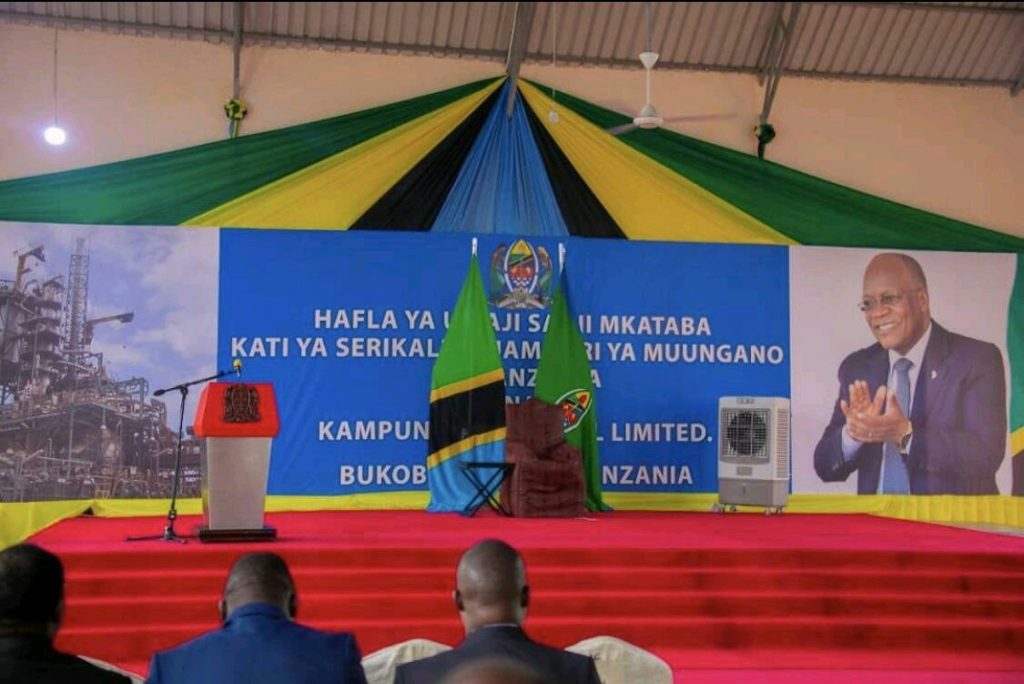
Tanzania issues special mining license for world’s largest unexploited nickel deposits
Following the signing of the Framework Agreement last January, the Government of Tanzania has now issued a special mining licence (SML) for a period of over 30 years for the Kabanga Nickel project, covering the full life of the project. The Kabanga Nickel Project holds the world’s largest development-ready nickel sulphide deposit and will produce Class 1 battery grade nickel, cobalt and copper. Its cradle-to-gate operation will notably rely on the hydromet technology, which is more cost efficient than smelting but can also reduce the carbon footprint and environmental impact of operations. Based on approximately 600 km of drilling, Kabanga’s previous owners, Barrick Gold Corporation and Glencore, had published a 2014 Resource Estimate (Measured, Indicated and Inferred) of 58 million tonnes of ore at an average in-situ nickel grade of 2.62%. Mineralisation of the resource is greater than 95% massive sulphide. In order the develop the project, Kabanga Nickel and the Government of Tanzania had signed last January a Framework Agreement establishing the Tembo Nickel Corporation. The operating company is now the one in charge of mining, processing and refining the Class 1 nickel with cobalt and copper co-products. Tembo is owned at 84% by Kabanga Nickel with the remaining 16% held by the Government of Tanzania. By accelerating the development of the project, Kabanga Nickel will be increasing the supply of crucial minerals in the development and manufacture of batteries used in electric vehicles. On the back of growing demand for EV batteries, global supply of nickel is forecast to grow from 2.25 million tonnes in 2020 to 5 million tonnes by 2040, according to Roskill.
Read more »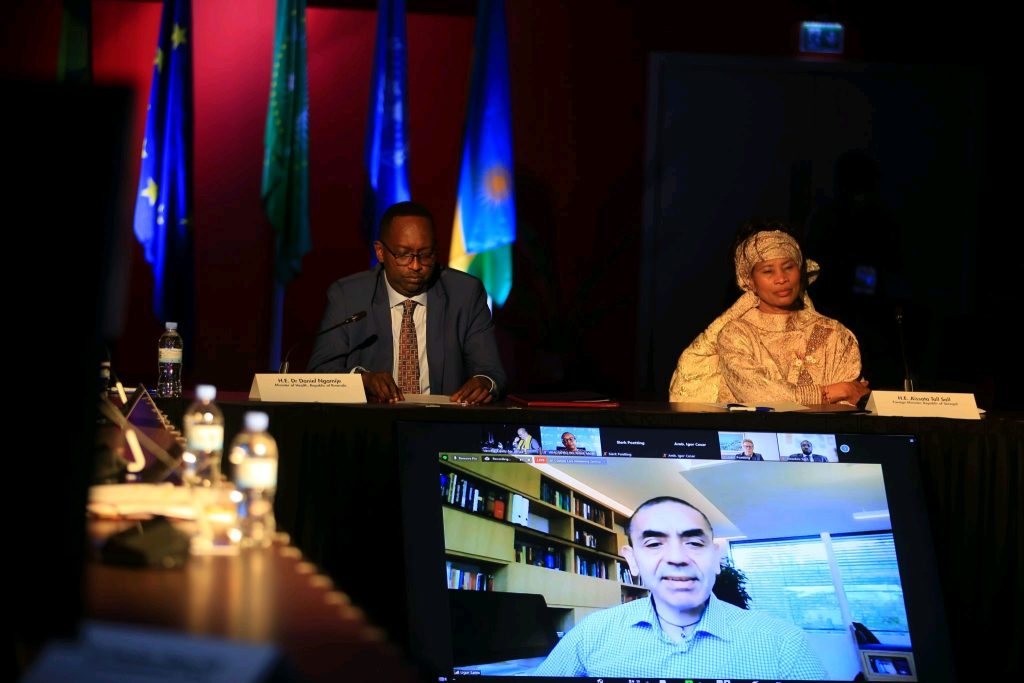
Africa’s first mRNA-based vaccine plant to be set up in Rwanda next year
German biotechnology company BioNTech has signed a Memorandum of Understanding (Mou) with the Rwandan Government and the Institut Pasteur (Dakar) to construct Africa’s first mRNA-based manufacturing facility in Rwanda next year. The agreement was signed on the sideline of the Second Ministerial Meeting of the African Union and the European Union and follows the signing of a Joint Communiqué between the same parties in Berlin last August. “We aim to accelerate the building of a GMP-certified manufacturing facility and plan to begin the construction on site in mid-2022,” said Sierk Poetting, COO of BioNTech. BioNTech’s long-term vision is to develop and grow a regional manufacturing network to support the access to vaccines manufactured in Africa. The facility in Rwanda is expected to be the first node in such a decentralized African end-to-end manufacturing network. The first production line will have a drug manufacturing capacity of 50 millions of e.g. COVID-19 vaccine does a year once operational. The capacity can then be further expanded with the addition of additional manufacturing lines and sites across the network. While BioNTech sets up the facility and staffs it, the Rwandan Development Board and the Institut Pasteur will be building up the required human resources capacity and systems to take over ownership and operational duties as soon as possible.
Read more »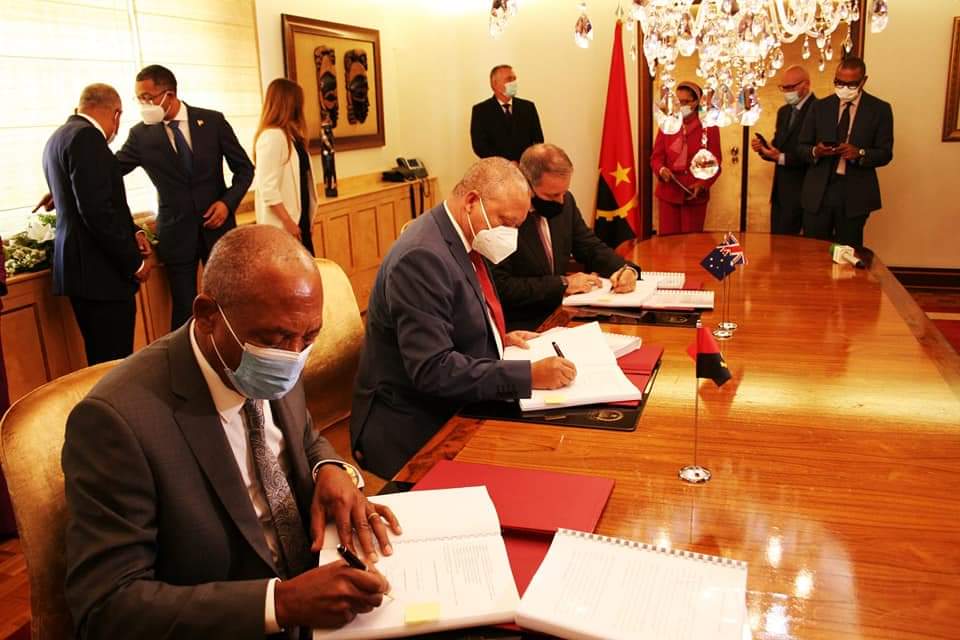
World’s second-largest mining company enters Angolan diamond mine
Last week in Lison, Angola’s Ministry of Mineral Resources, Petroleum & Gas and Angola’s national diamond company Endiama signed a mining investment contract with Rio Tinto for the Chiri diamond concession in the Lunda Norte Province in northern Angola, at the border with the Democratic Republic of Congo (DRC). The negotiations had been ongoing since late 2018 for the 108km2 concession. The contract covers a period of 35 years and provides for an initial participation of 75% by Rio Tinto in a new joint-venture with Endiama (25%) on the licence. The Angolan company could eventually increase its stake to 49%. Rio Tinto has declared that works would start immediately at the mine, with first production expected in 2024. Source: BNA Angola is the world’s sixth largest diamond producer and diamonds represent the country’s second biggest source of export earnings after oil and liquefied natural gas (LNG). The country has been increasing efforts to revive the sector and attract investments in a bid to diversify the economy, support industrialization and grow foreign exchange revenue sources.
Read more »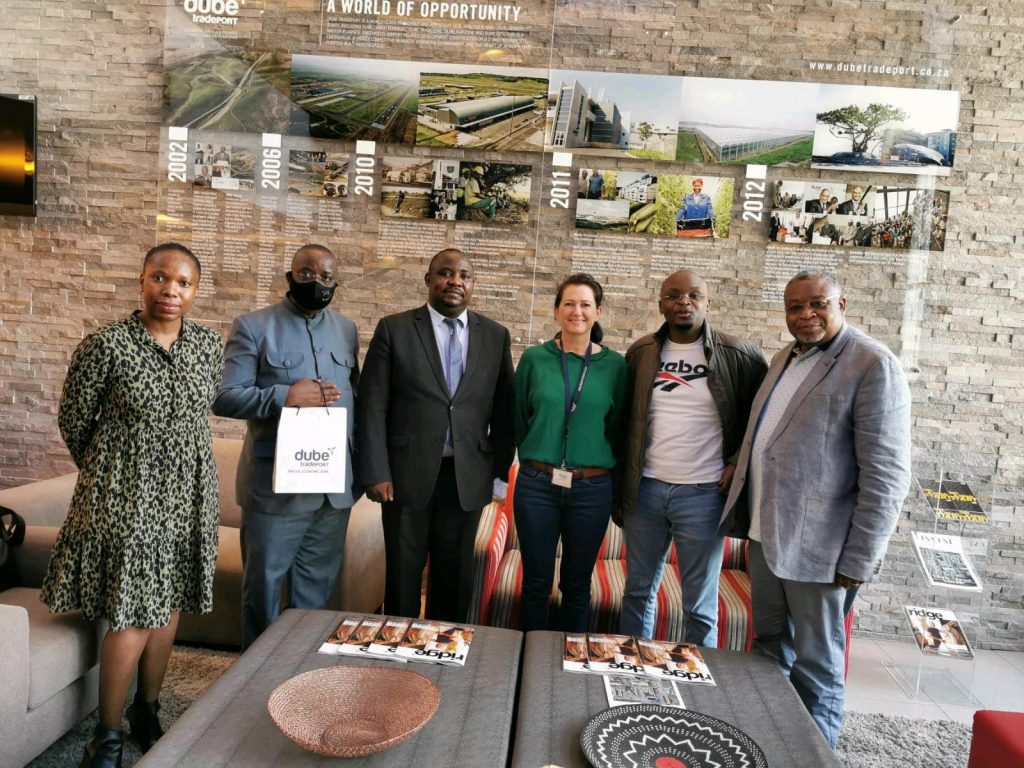
AVZ Minerals secures Chinese investor for major DRC lithium and tin project
AVZ Minerals has announced this morning the signing of a transaction implementation agreement (TIA) with Suzhou CATH Energy Technologies of China. Under the agreement, CATH will earn a 24% equity interest in the joint-venture set up to develop the Manono Lithium and Tin Project in the Democratic Republic of Congo (DRC). In return, CATH is to contribute $240m in cash towards the development of the project. “Proceeds from the transaction will fund a majority of the total project financing required, whilst AVZ will retain a controlling 51% interest in the Manono Project post-completion of the transaction and its position as lead developer of the Manono Project,” AVZ said in a statement this morning. In addition, the existing Offtake Agreement with Yibin Tianyi will be assigned to CATH and expanded in scope to provide offtake of SC6 for the life of the Manono Project. CATH will also enter into a long-term Primary Lithium Sulphate offtake or tolling agreement in respect of PLS produced from the PLS calcining plant. The Manono project is one of the largest upcoming mining development in the DRC, with a Roche Dure Mineral Resource of 401m tonnes grading 1.65% Li2O, 752ppm Sn, 34ppm Ta is world-class in scale and grade. It is strategically positioned as a clean and sustainable source of lithium for the global EV battery value-chain.
Read more »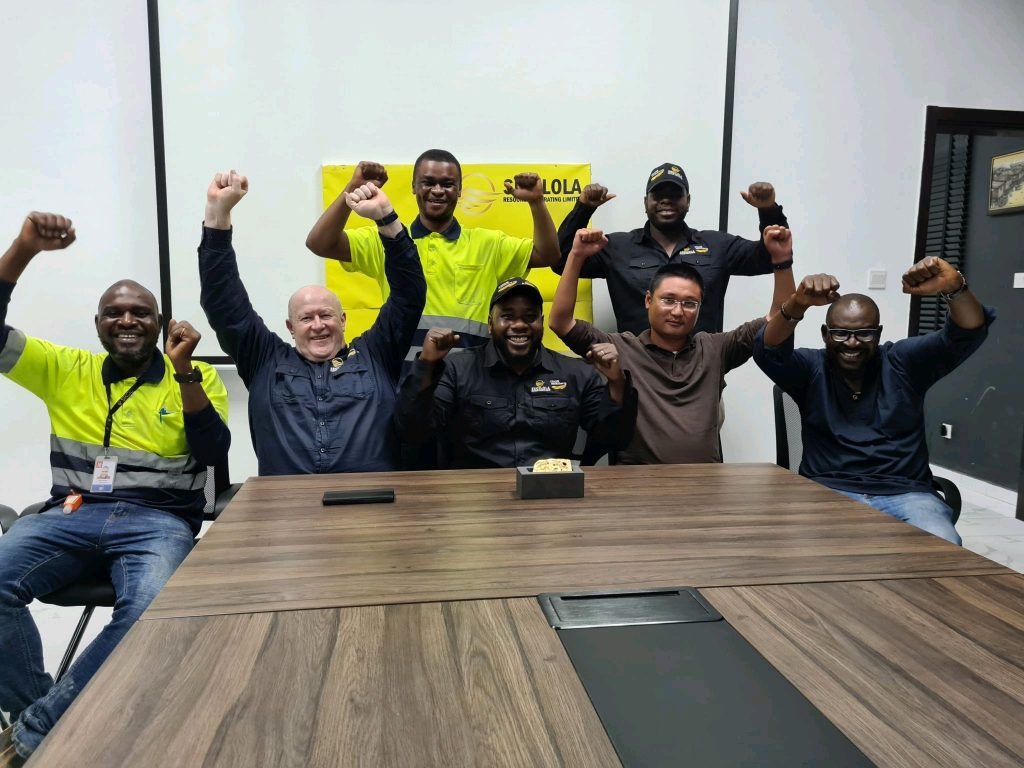
Thor Explorations has poured first gold at Nigeria’s flagship gold mine
Over the weekend, Thor Explorations has poured first gold from its Segilola Gold Mine in Nigeria’s Osun State. This is a critical milestone for the project where commercial production is expected in September. Once fully commissioned, the plant will run at a processing rate of 715,000 tonnes per annum, targeting about 85,000 ounces of gold a year. The Segilola Gold Mine has been under development for a few years and will mark a critical milestone in Nigeria’s journey to further diversify away from oil. While its neighbours in West and Central Africa have all successfully developed their mining and minerals industry to support economic growth and create jobs, Nigeria’s mining sector has remained massively under-developed.
Read more »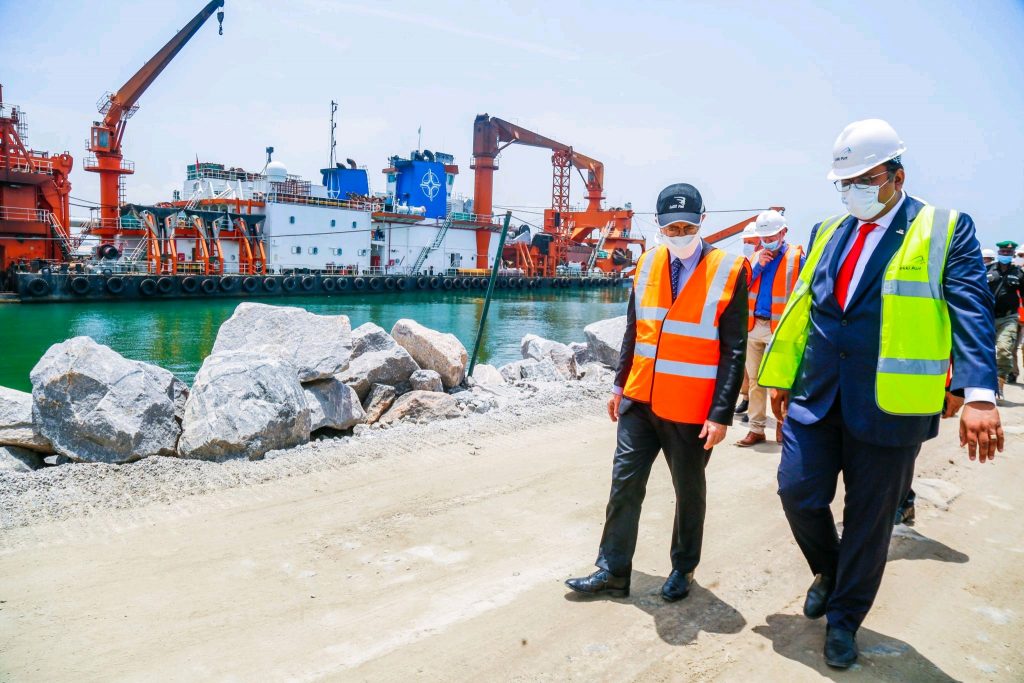
Nigerian institutional investors back bonds issuance from country’s leading free zone
The Lagos Free Zone Co. (LFZC), a subsidiary Singaporean conglomerate Tolaram, has successfully issued a NGN 10.5bn 20-year Series 1 Senior Guaranteed Fixed Rate Corporate Infrastructure Bonds, the company said today. The issuance falls under a NGN 50bn debt issuance programme aimed at securing financing to expand what has become Nigeria’s most modern and integrated free zone, located on the outskirts of Lagos. The Lagos Free Zone is being developed along with the Lekki Deep Sea Port and will be the largest integrated port-based economic zone in Nigeria. It is being developed over 830 ha as part of a $2.1bn investment commitment by Tolaram, of which about half has been invested already. The company is expected to complete the deep sea port in 2022, at the same time when it would lay out a piped gas supply and distribution network to provide energy to its tenants. The port is currently under construction by the China Harbour Engineering Co. (CHEC) and will have its container terminal operated by CMA Terminals. Its Phase 1 development involves 2 container berths and one dry bulk terminal, with a capacity of 1.2 million TEUs and a draught of 16.5m. The bonds issuance announced this week is significant for Nigeria where unlocking domestic institutional capital remains a priority to bridge the infrastructure financing gap. The bond was backed by an irrevocable and unconditional guarantee from InfraCredit and was accorded a ‘AAA’ long term credit rating by Agusto and Co. and GCR, reflecting the highest degree of creditworthiness for these bonds. It was also oversubscribed by institutional investors including eleven domestic pensions funds, two insurance firms, banks and HNIs. “The transaction is the first 20-year non-FGN Bond issue in the Nigerian debt capital market and the first Securities and Exchange Commission approved Infrastructure Bond for the development of an industrial hub” LFZC said in a statement. Source: PenCom The latest data available from Nigeria’s National Pension Commission shows that the country’s pension funds have continued to shy away from investing in infrastructure funds. Despite a YoY growth of pension funds’ investments into infrastructure funds of +23% between July 2020 and July 2021, they still represent only 0.52% of Nigerian pension funds’ overall investment portfolio.
Read more »